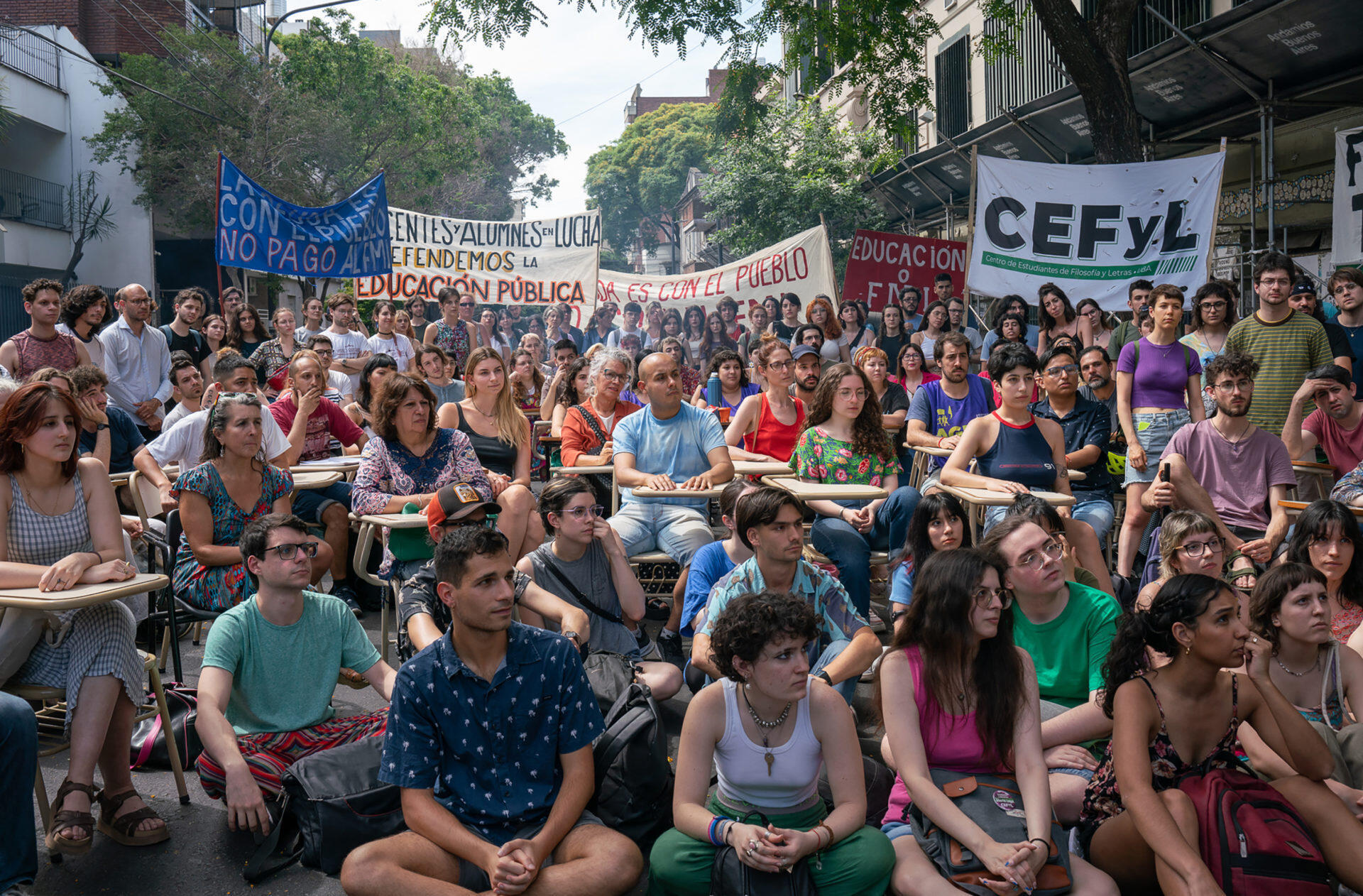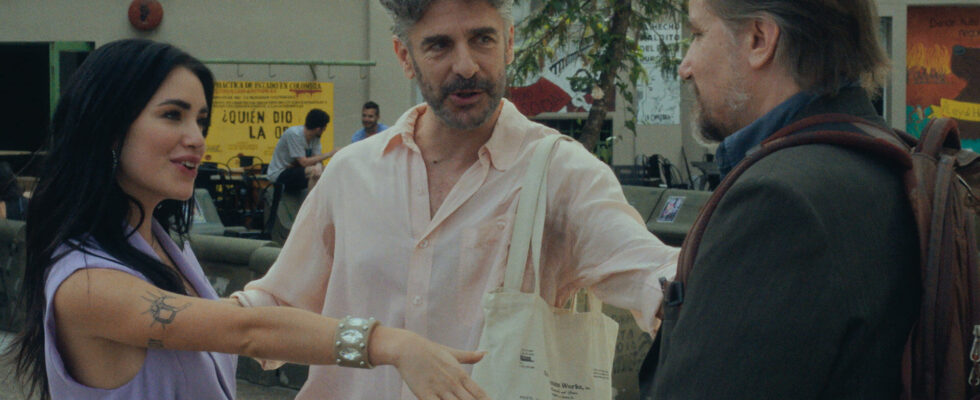On screens this Wednesday, July 3, an Argentinian film that is both jubilant and serious, The professor by Maria Alche and Benjamin Naishtat, discovered at the San Sebastian festival last year where it won the prize for best screenplay and the prize for best male interpretation for Marcelo Subiotto, a popular actor who plays a pathetic and moving professor of philosophy at the public university of Buenos Aires.
5 min
At your age, you should have your own dreams, right?, says little Manolo to his father, Marcelo, a philosophy professor. In many ways, the little guy seems more mature than his father, who suddenly became an orphan of his spiritual father, Professor Caselli, a specialist in Jean-Jacques Rousseau, who died of a heart attack. Physically plump, a little clumsy, technologically handicapped, Marcelo Pena is a kind man, who lives in the shadow of his mentor and his wife, a social activist, an excellent teacher devoted to his students to whom he explains Rousseau or Hobbes.
Battle for a chair
In the “talents” category he ticks three boxes: he can do a handstand, teach philosophy and sing tangos… Marcelo Pena decides to apply for the chair of Professor Caselli, pushed by his relatives and by his animosity towards a colleague who arrived from Europe, pedantic and flamboyant, Rafael Sujarchuk, played by the equally flamboyant Leonardo Sbaraglia.
Between the two men, a competition is established. It is Spinoza, the philosopher of joyful passions that cement the social bond, against Hobbes, according to whom fear creates community. Sujarchuk arrives crowned with his academic career in Europe, a nod to the exile syndrome of a part of the Argentine intelligentsia, and his love affair with a movie star, played by Lali Espositorecently known for having had a run-in with the Argentine president Javier Milei.
A rebellious and fragile university
Beyond the rivalry between the two professors, magnificently served by the performances of the two actors, the film also paints a picture of the Argentine academic world, of the public university — it is important to emphasize this —, with its poorly paid professors who must resort to private lessons to make ends meet; its corridors decorated with protest banners (and tributes to those who died during the military dictatorship); its rebellious students who quote Lenin and its intrusive pigeons… Marcelo also teaches Heidegger to a rich old lady and introduces a group of inhabitants of the villasthe poor districts of the capital. He is accompanied by a police officer, a security measure imposed by the town hall, whom he invites to his class.
If in everyday life he is lost, in class, Marcelo is on track. He transcends his shyness in front of his students, whoever they may be. The Faculty of Letters and Philosophy of Puán (Puan is the original title of the film and this faculty is known throughout the country) is renowned for the diversity of its audience, of all ages and social conditions. A university ruined by budget cuts in the film and in real life. When fiction meets reality: the public university of Buenos Aires, like many public services, has been experiencing gas and electricity cuts in recent months imposed by the credit restrictions of the government of Javier Milei.

Read alsoArgentina: Hundreds of thousands demonstrate to defend the university
How to think and tell the world
The film manages to reconcile the comic effects of the scenario, underlined by the musical illustration and the movements of the camera eyepiece (iris closing according to the consecrated expression, at the initiative of the director of photography, Helène Louvart who notably worked with Karim Aïnouz) that recall burlesque films, and more existential questions: why does Marcelo, when addressing a woman of an Indian type, conclude that she is the maid? What is a people, what constitutes its cement? Can we only think of the world from a framework imagined by European philosophers of the 17th and 18th centuries? What about the original thought of essayists like the Peruvian Jose Carlos Mariategui (which advocates an indigenism inspired by Marx and the social organization of the Aymaras) to which the University of La Paz in Bolivia wants to pay homage?
Directors Maria Alché (she was The Holy Girl Lucrecia Martel before moving into directing herself with a moving first film seen in San Sebastian A submerged familynever released in France) and Benjamin Naishtat, director of Red (2019) on the Argentine dictatorship, surrounded themselves with a tribe of actors very well-known in Argentina. A whole gallery of characters and often comical situations swirl around Professor Pena, making the anthill sensitive porteña. As his very pedantic competitor Sujarchuk explains, the Argentine chaos is conducive to disruption, to thought. Let’s say that it is at least very cinematic. For all these reasons, specific to the film itself and because of the current Argentine political context, The professor has found its audience in its country where it has been warmly received and it should also find its own on this side of the Atlantic.
